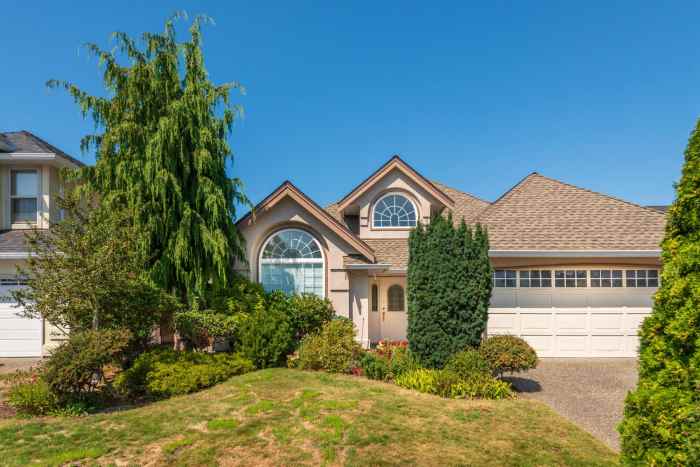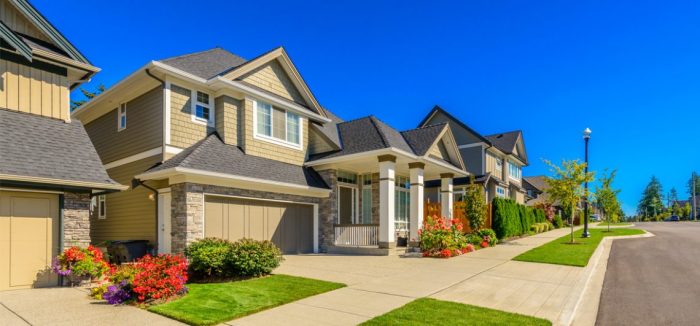Exploring Property Management for Homeowners Associations

Delve into the realm of property management for homeowners associations, where the intricacies of overseeing and maintaining communal living spaces come to light. This introduction sets the stage for a comprehensive exploration of the topic, offering insights that captivate and inform.
Detailing the responsibilities, legal aspects, communication strategies, and financial management involved in property management for homeowners associations, this discussion sheds light on a crucial aspect of community living.
Introduction to Property Management for Homeowners Associations

Property management for homeowners associations involves the overseeing and maintenance of shared properties within a community. This includes managing common areas, enforcing rules and regulations, collecting fees, and ensuring the overall well-being of the community.
Importance of Property Management for Homeowners Associations
Property management for homeowners associations is crucial for maintaining property values, preserving the aesthetics of the community, and fostering a sense of community among residents. Without proper management, issues may arise, such as neglect of common areas, disputes among residents, and financial mismanagement.
Tasks Involved in Property Management for Homeowners Associations
- Regular maintenance of common areas, such as landscaping, pools, and recreational facilities.
- Enforcement of community rules and regulations to ensure a harmonious living environment.
- Collection of dues and fees to fund necessary community expenses and projects.
- Handling of repairs and emergencies to address any issues promptly and efficiently.
- Organizing community events and activities to promote a sense of belonging and unity among residents.
Responsibilities of Property Managers in Homeowners Associations
Property managers play a crucial role in overseeing homeowners associations, ensuring the smooth operation and maintenance of the community. They handle various responsibilities, including maintenance issues and financial management.
Role of Property Managers
Property managers are responsible for overseeing the day-to-day operations of homeowners associations. They act as a liaison between the board of directors and homeowners, ensuring that rules and regulations are enforced, and resolving any conflicts that may arise within the community.
Maintenance Issues Management
Property managers are tasked with handling maintenance issues within the community. This includes coordinating repairs, scheduling regular maintenance tasks, and ensuring that common areas are well-maintained. They work closely with vendors and contractors to address any maintenance concerns promptly and efficiently.
Financial Responsibilities
In managing homeowners associations, property managers are also responsible for financial matters. This includes creating and managing the association's budget, collecting dues and fees from homeowners, and overseeing financial records. Property managers must ensure that the association operates within its budget and that funds are allocated appropriately for maintenance, repairs, and other expenses.
Legal Aspects of Property Management for Homeowners Associations
When it comes to property management for homeowners associations, understanding the legal aspects is crucial to ensure smooth operations and compliance with regulations. Property managers often encounter various legal issues that require careful handling to avoid costly disputes and penalties.
Common Legal Issues in Homeowners Associations
- Violation of CC&Rs (Covenants, Conditions, and Restrictions): Property managers need to address violations of the association's rules and regulations, such as unauthorized modifications, noise complaints, or improper use of common areas.
- Disputes with homeowners: Property managers may need to mediate conflicts between homeowners, such as boundary disputes, disagreements over maintenance responsibilities, or pet restrictions.
- Non-compliance with local laws: Property managers must ensure that the homeowners association complies with all relevant local laws and regulations, including zoning ordinances, building codes, and fair housing laws.
Importance of Compliance with Laws and Regulations
- Protecting the association's interests: Compliance with laws and regulations helps protect the homeowners association from legal liabilities, fines, and lawsuits.
- Maintaining a positive reputation: Ensuring compliance enhances the reputation of the homeowners association and fosters trust among homeowners and the community.
- Promoting harmony and cohesion: Adhering to legal requirements promotes a harmonious environment within the homeowners association and prevents conflicts that may arise due to non-compliance.
Resolving Legal Disputes within Homeowners Associations
- Mediation and arbitration: Property managers can help facilitate the resolution of legal disputes through mediation or arbitration, providing a more cost-effective and efficient alternative to litigation.
- Seeking legal counsel: In complex legal matters, property managers may need to consult with legal experts to ensure proper guidance and compliance with the law.
- Documenting agreements: It is essential to document any resolutions or agreements reached during legal disputes to avoid future misunderstandings and ensure enforcement.
Communication Strategies for Property Management in Homeowners Associations
Effective communication is essential for maintaining a harmonious relationship between property managers and homeowners in homeowners associations. Clear and transparent communication helps in addressing issues promptly and fostering a sense of community.
Importance of Transparency and Timely Communication
Transparency and timely communication play a crucial role in building trust and ensuring the smooth operation of homeowners associations. Homeowners rely on property managers to keep them informed about important matters affecting the community.
- Regular Updates: Property managers should provide regular updates to homeowners regarding maintenance schedules, community events, financial reports, and any changes in rules or regulations.
- Open Door Policy: Encouraging an open-door policy where homeowners can easily reach out to property managers with their concerns or feedback can improve communication.
- Clear Communication Channels: Utilizing various communication channels such as emails, newsletters, community forums, and social media platforms can ensure that information reaches homeowners effectively.
- Responsive Communication: Property managers should be responsive to homeowner inquiries and address any issues or complaints in a timely manner to maintain trust and transparency.
Examples of Tools or Platforms for Communication
There are several tools and platforms available to facilitate communication between property managers and homeowners in homeowners associations:
- Email:Sending regular updates, newsletters, and important announcements through email can ensure that homeowners stay informed.
- Community Websites:Creating a dedicated website for the homeowners association where residents can access important documents, event calendars, and community guidelines.
- Mobile Apps:Utilizing mobile apps that allow homeowners to receive notifications, submit maintenance requests, and communicate with property managers conveniently.
- Virtual Meetings:Hosting virtual meetings or webinars to discuss important matters and address homeowner concerns in real-time.
Financial Management in Homeowners Associations

Effective financial management is crucial for the smooth operation of homeowners associations. This includes budgeting, collecting dues, fees, and handling financial reports and audits. Let's delve into the key aspects of financial management in homeowners associations.
Budgeting Process for Homeowners Associations
The budgeting process for homeowners associations involves forecasting expenses, determining reserve funds, and setting annual budgets to cover maintenance, repairs, and other operational costs. It is essential to involve board members and property managers in creating a transparent and realistic budget that meets the needs of the community.
Collection of Dues and Fees from Homeowners
Property managers play a vital role in collecting dues and fees from homeowners. They are responsible for enforcing collection policies, sending out invoices, and following up on late payments. Clear communication and consistent enforcement of payment deadlines are key to ensuring a steady cash flow for the association.
Handling Financial Reports and Audits
Property managers are tasked with preparing and presenting financial reports to the board of directors and homeowners. These reports provide a comprehensive overview of the association's financial health, including income, expenses, and reserves. Property managers also coordinate with auditors to conduct annual audits, ensuring compliance with financial regulations and transparency in financial operations.
Epilogue
In conclusion, property management for homeowners associations is a multifaceted endeavor that requires attention to detail, effective communication, and financial acumen. By understanding the complexities involved, stakeholders can ensure the smooth functioning of their communities and enhance the quality of life for residents.
User Queries
What are the common legal issues property managers encounter in homeowners associations?
Property managers often face legal challenges related to disputes over property boundaries, violations of community rules and regulations, and issues with delinquent homeowners. It's crucial for property managers to stay informed about local laws and regulations to navigate these issues effectively.
How do property managers handle financial reports and audits within homeowners associations?
Property managers are responsible for maintaining accurate financial records, preparing budgets, collecting dues, and overseeing financial audits. By ensuring transparency and accountability in financial management, property managers uphold the financial health of homeowners associations.
What tools or platforms are commonly used for communication in property management for homeowners associations?
Property managers often utilize communication tools such as community portals, email newsletters, and social media platforms to engage with homeowners, provide updates on maintenance issues, and address concerns. These platforms facilitate efficient communication and foster a sense of community within homeowners associations.

